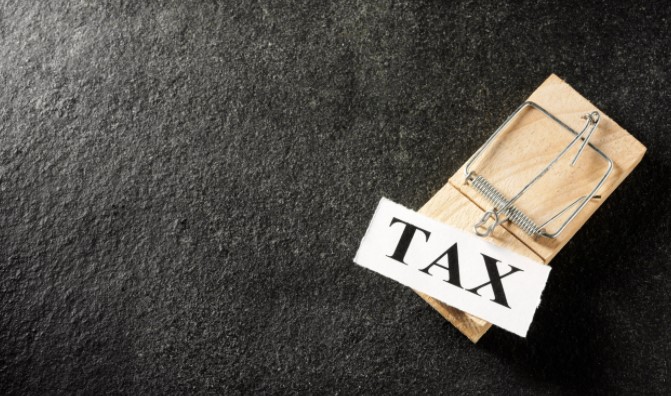Table of Contents
If you’re earning over £100,000, then you could be unknowingly paying an effective tax rate of 60%!
It is known as the 60% tax trap, it can be disheartening for high earners who reach six figures, to then see their income ravished by taxation.
So how does this wrinkle in the tax system catch people out? And most importantly, how can the 60% trap be avoided?
Read on to find out more.
Income Tax Rates for England, Wales and Northern Ireland

First of all, it’s worth understanding the income tax rates for earnings. Income tax, as the name suggests, is the amount of tax you pay on your income. The types of income you’ll need to pay tax on include, but are not limited to:
- Earned money from employment
- Profits you make if you’re self-employed
- Rental income
- Income from a trust
- Benefits you get from your job
- Some state benefits
- Income from most pensions, including state pensions, company and personal pensions and retirement annuities
For the tax year 2021/2022, the income tax rates are as follows:
- Personal Allowance — taxable income up to £12,570 — 0% tax rate
- Basic rate — taxable income £12,571 to £50,270 — 20% tax rate
- Higher rate — taxable income £50,271 to £150,000 — 40% tax rate
- Additional rate — taxable income over £150,000 — 45% tax rate
Your tax-free Personal Allowance is the amount of income you do not have to pay tax on. As stated above, this is currently £12,570.
However, when your taxable income reaches £100,000, your Personal Allowance is gradually cut by £1 for every £2 additional income. As such, when your income reaches £125,140, you lose your tax-free Personal Allowance completely and start paying the higher rate of tax on your income, much sooner.
The 60 Percent Tax Trap Explained?
If you were to earn a bonus of £1,000 on top of your £100,000 salary, this additional income would be taxed at a higher rate of 40%, leaving you with £600.


This is where the tax trap comes into play, as you will also lose £500 from your tax-free Personal Allowance. £500 more of your income will also be taxed at 40%, costing you a further £200.
The £1,000 bonus has been taxed at an effective rate of 60%. You would have paid £600 in tax and left with just £400.
How to Avoid the 60 Percent Tax Tap?
With some expert financial aspects, there is a way that you can, in fact, steer clear of the 60% tax trap.
This can be done by simply using your pension. Through your pension contributions, you can claim tax relief, which will reduce your taxable income and regain your full tax-free personal allowance.


For instance, if you were to earn £125,140, you would have lost your entire tax-free personal allowance. However, if you make a pension contribution of £20,112, the government will apply £5,028 in basic rate tax relief. Paid straight into your pension, this takes your total contribution up to £25,140.
Furthermore, £5,028 can be claimed in higher rate tax relief on your tax return.
This straightforward method will reduce your taxable income by £25,140, taking it back down to the taxable earnings of £100,000. You’ll regain your tax-free personal allowance of £12,570 and save another £5,028 in tax.
The total benefit will be £15,084, simply by making the most of your pension contributions.
The savings don’t stop here either as, in practice, National Insurance will also be saved on your pension contributions, if they are made via salary sacrifice.
As a high earner, you’ll likely face considerable financial challenges, such as the 60% tax trap. The best approach is to consult the professionals for new investment management and financial planning firm Saltus, to help formulate the most effective financial plan, and achieve your financial goals in life.
Disclaimer
As of the date of publication, the information is correct to the best of our knowledge. This content is not intended to be financial advice and should not be relied upon as such. Capital is at risk. You may get back less than you put in.






































